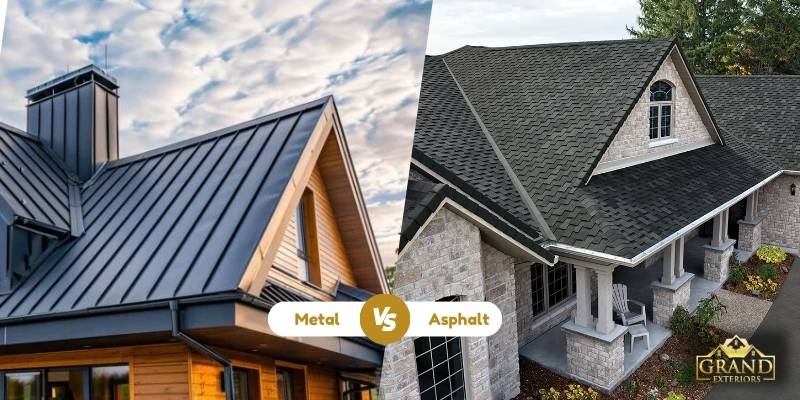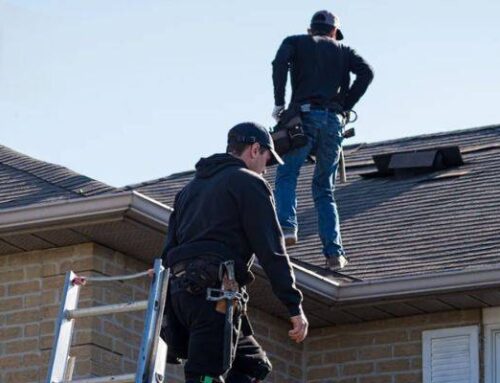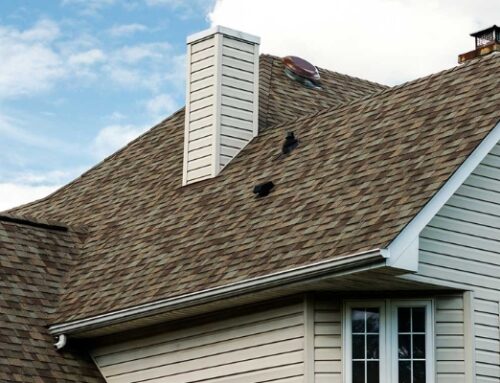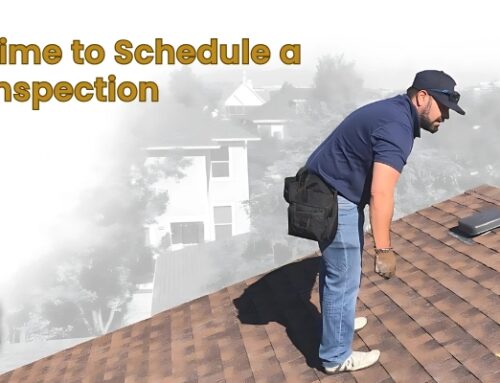Let’s be honest—your roof doesn’t get much thought until something goes wrong. But with climate change turning weather patterns upside down and energy costs climbing, the choice between metal and asphalt roofing has never been more important.
A contractor who has installed both types for over a decade, has seen both the pros and cons of different roofing materials. Metal roofs that weathered hurricanes without a scratch. Asphalt shingles that disintegrated after just one brutal summer. And homeowners stuck with expensive surprises because they didn’t know what questions to ask.
This isn’t about pushing one option over the other—it’s about giving you the real-world insights so you can decide what’s best for your home, budget, and peace of mind.
Lifespan: The Long-Term Value Test
Metal roofs are the undisputed champions when it comes to longevity. A properly installed metal roof can last 50 years or more—some even come with warranties that outlive their owners.
Asphalt shingles- You’ll be lucky to get 20-25 years, even with premium architectural shingles. And in extreme climates, that number drops fast.
Key Differences:
- Metal: Holds up against expansion/contraction, so no cracking over time
- Asphalt: Organic versions absorb moisture, leading to curling and granule loss
- Maintenance: Metal needs occasional inspections; asphalt requires more frequent repairs
Durability in Extreme Weather
Homes with metal roofs emerged unscathed, while asphalt roofs looked like they’d been through a woodchipper.
How They Compare:
| Weather Challenge | Metal Performance | Asphalt Performance |
| 120+ mph winds | Stays intact | Shingles tear off |
| Baseball-sized hail | Minor dents | Requires full replacement |
| Wildfire embers | Non-combustible | Can ignite |
| Heavy snow load | Sheds snow easily | Can collapse if overloaded |
Real-World Example: After Hurricane Ian, metal-roofed homes in Florida had 80% fewer insurance claims than asphalt ones.
Cost Breakdown: Upfront vs. Lifetime
Yes, metal costs more initially—typically 2-3 times more than asphalt. But the math changes when you look long-term:
Asphalt Roof Over 50 Years:
- Installations: 2-3 replacements (Approx. $5,000−$30,000 total)
- Repairs: Approx. $3,000−$5,000 for storm damage
- Energy costs: 15-20% higher due to heat absorption
Metal Roof Over 50 Years:
- Installation: One time (Approx. $20,000−$35,000)
- Repairs: Minimal (usually under $1,000)
- Energy savings: Up to 25% on cooling
Hidden Perks: Many insurers offer 10-30% discounts for metal roofs in disaster-prone areas.
Energy Efficiency & Comfort
Ever noticed how some homes feel like ovens in summer? Their roofing choice is likely why.
- Metal: Reflects 70-80% of solar heat (attic stays 20-30°F cooler)
- Asphalt: Absorbs heat, raising indoor temps and AC bills
- New Tech: Some metal roofs now integrate with solar panels for even bigger savings
- Pro Tip: Lighter colors (especially “cool roof” coatings) boost efficiency for both types.
The Noise Myth (And Other Concerns)
Let’s debunk some common worries:
1. “Metal roofs are noisy in rain.”
- Modern installations with solid decking and insulation are actually quieter than asphalt
2. “Metal looks too industrial.”
- Today’s options mimic slate, wood shakes, even traditional shingles
3. “Asphalt is easier to repair.”
- True, but metal needs repairs far less often
The Verdict: Which Should You Choose?
Go Metal If You:
- Live where hail, hurricanes, or wildfires are risks
- Plan to stay in your home 15+ years
- Want to maximize energy savings
- Prefer “install once and forget about it”
Asphalt Still Makes Sense When:
- You’re selling within 10 years
- Budget is tight upfront
- Your HOA(Homeowners Association) restricts metal roofs (some still do)
- You prefer the traditional look
Conclusion
A roof is the only part of your home that’s constantly battling the elements. Choose the one that lets you sleep soundly through the next storm. Check credentials—only 1 in 5 roofers are properly certified for metal. Read warranties carefully—many asphalt warranties void in winds over 60 mph.
Need Help Deciding? Contact Our Roofing Experts – Grand Exteriors for a quick consultation. We’ll analyze your home’s specific needs—from climate risks to budget—and give you straight answers.




